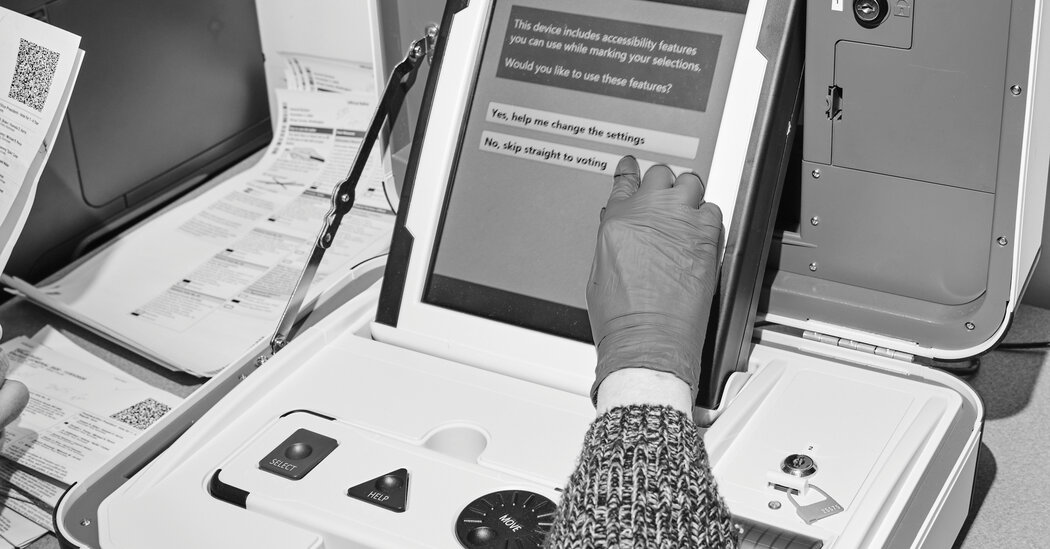
Nor is it just secretaries of state. “Voter suppression is happening at every level of government here in Georgia,” Representative Nikema Williams, who chairs the Georgia Democratic Party, told me. “We have 159 counties, and so 159 different ways boards of elections are elected and elections are carried out. So we have 159 different leaders who control election administration in the state. We’ve seen those boards restrict access by changing the number of ballot boxes. Often, our Black members on these boards are being pushed out.”
America’s confounding political structure creates two mismatches that bedevil democracy’s would-be defenders. The first mismatch is geographic. Your country turns on elections held in Georgia and Wisconsin, and if you live in California or New York, you’re left feeling powerless.
But that’s somewhere between an illusion and a cop-out. A constant complaint among those working to win these offices is that progressives donate hundreds of millions to presidential campaigns and long-shot bids against top Republicans, even as local candidates across the country are starved for funds.
“Democratic major donors like to fund the flashy things,” Litman told me. “Presidential races, Senate races, super PACs, TV ads. Amy McGrath can raise $90 million to run against Mitch McConnell in a doomed race, but the number of City Council and school board candidates in Kentucky who can raise what they need is …” She trailed off in frustration.
The second mismatch is emotional. If you’re frightened that America is sliding into authoritarianism, you want to support candidates, run campaigns and donate to causes that directly focus on the crisis of democracy. But few local elections are run as referendums on Trump’s big lie. They’re about trash pickup and bond ordinances and traffic management and budgeting and disaster response.
Lina Hidalgo ran for county judge in Harris County, Texas, after the 2016 election. Trump’s campaign had appalled her, and she wanted to do something. “I learned about this position that had flown under the radar for a very long time,” she told me. “It was the type of seat that only ever changed who held it when the incumbent died or was convicted of a crime. But it controls the budget for the county. Harris County is nearly the size of Colorado in population, larger than 28 states. It’s the budget for the hospital system, roads, bridges, libraries, the jail. And part of that includes funding the electoral system.”
Hidalgo didn’t campaign as a firebrand progressive looking to defend Texas from Trump. She won it, she told me, by focusing on what mattered most to her neighbors: the constant flooding of the county, as violent storms kept overwhelming dilapidated infrastructure. “I said, ‘Do you want a community that floods year after year?’” She won, and after she won, she joined with her colleagues to spend $13 million more on election administration and to allow residents to vote at whichever polling place was convenient for them on Election Day, even if it wasn’t the location they’d been assigned.




